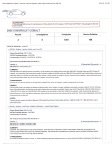GM halts some Cruze sales, expands recall
SEE ALSO: NHTSA missed Cobalt clues
By Tom McParland
tmcparland@vindy.com
YOUNGSTOWN
It was not a good day for General Motors.
The same day the company mysteriously stopped selling a significant part of its Lordstown-built Chevrolet Cruze inventory, the embattled automaker expanded its worldwide recall by 971,000 cars.
The initial recall included 1.6 million Chevrolet Cobalt, HHR, Pontiac G5, Solstice and Saturn Ion and Sky small cars through the 2007 model year because of a faulty ignition switch.
But Friday’s recall included cars from the model years 2008-2011 because defective switches may have been used to repair the vehicles.
About 90,000 faulty switches were used to repair the older vehicles before they were recalled in February, the company said.
“We are taking no chances with safety,” GM CEO Mary Barra said in a statement issued Friday evening. “Trying to locate several thousand switches in a population of 2.2 million vehicles and distributed to thousands of retailers isn’t practical. Out of an abundance of caution, we are recalling the rest of the model years.”
That announcement, made well after the New York Stock Exchange closed, came on the heels of GM’s directive that dealers halt sales of about one-third of the Cruzes on dealer lots. GM stock closed at 34.73 Friday on the New York Stock Exchange, after opening at 34.64.
GM told dealers Thursday night to stop selling 2013 and 2014 Cruze models equipped with a 1.4-liter gasoline turbo engine until further notice, in an order known as a stop sale, a GM spokesman said.
The company didn’t identify any faulty parts associated with the stop sale. Nor did it indicate what prompted the decision.
Most stop sales involve minor repairs, usually made at the dealer lots.
Though stop sales are not uncommon, it is odd that GM has remained silent on details surrounding the issue, said Dan Sharkey, a lawyer who represents automotive suppliers in Detroit.
“A stop sale without any stated reason is highly unusual,” he said. “It’s the right thing to do, but it’s just odd to get it and not know why.”
Sales of the Cruze last year rose 4.4 percent to 248,224 cars, and GM’s second-best-selling car last month recorded its best February on record, with sales up 19 percent from the year before.
Greg Greenwood, owner of Greenwood Chevrolet, said the stop sale had affected 15 of the 60 Cruzes on his lot. He said the dealership usually stocks about 100 Cruzes, but inventory was low after a record sales month in February.
Greenwood was holding the cars aside while he waits on instructions from GM.
“We don’t know what they are going to want us to do,” he said, adding that dealers usually get instructions from automakers within a couple of days of a stop sale taking effect.
“These things happen all the time,” he said. “Because GM is under the microscope, they’re going to err on the side of caution.”
Meanwhile, at the Lordstown GM plant, which manufactures the Cruze, workers began signing confidentiality agreements this week.
Tom Mock, a plant spokesman, would not comment on the purpose of the document, other than saying it was part of the company’s policy to “keep certain aspects of our business private.”
But two representatives of the United Auto Workers of America, which represents workers at the plant, said the confidentiality agreement was related to the next generation of the Cruze.
Both denied it was connected to GM’s recalls.
The headaches caused by the stop sale and the latest developments in GM’s ongoing recall saga likely won’t let up any time soon as Barra prepares to testify before Congress next week regarding the company’s handling of a recall.
Though significant, the 2.6 million-vehicle recall is far from the biggest in the history of the American auto industry. In 1996, Ford recalled 7.9 million cars for a faulty ignition switch that caused fires.
 43
43

